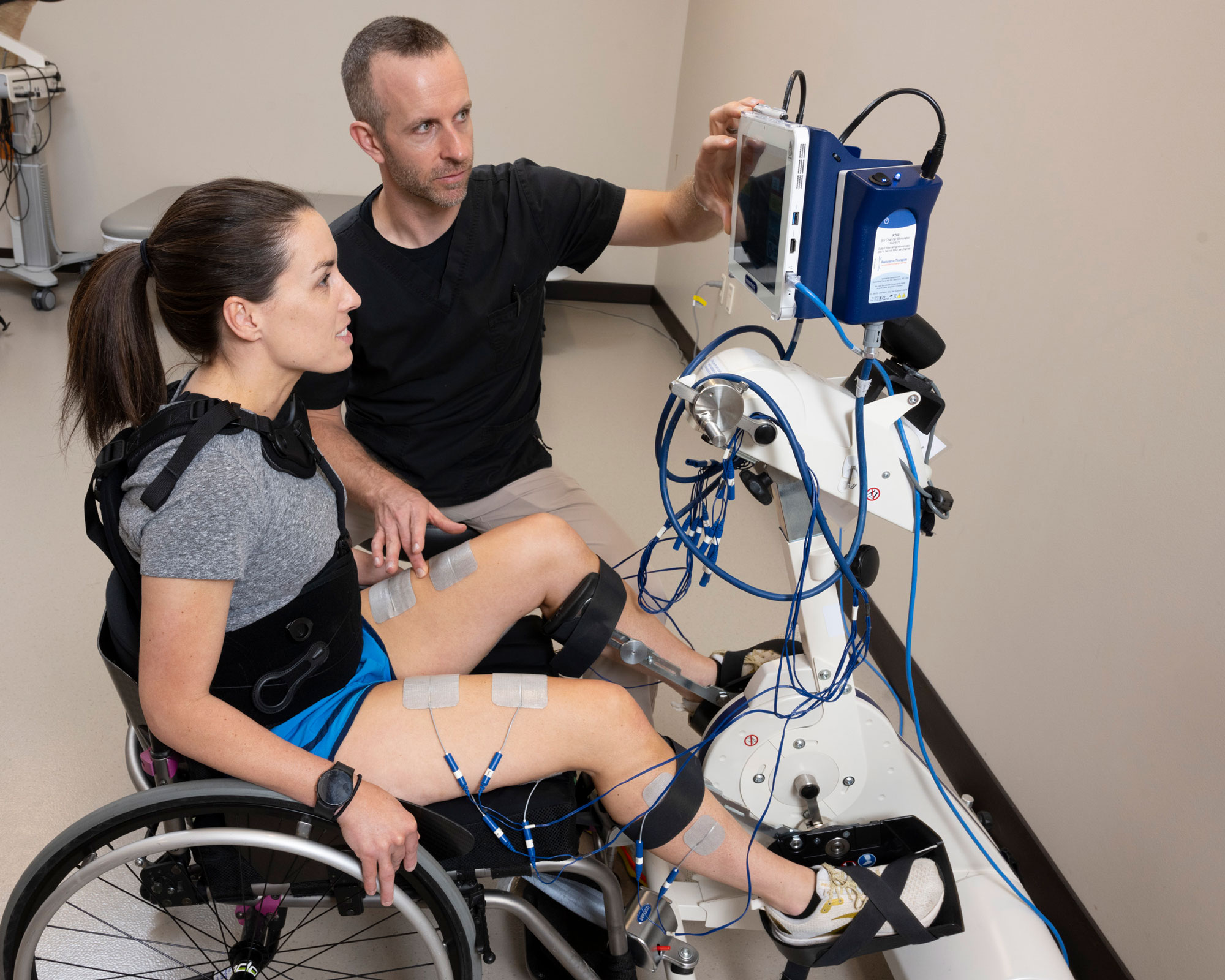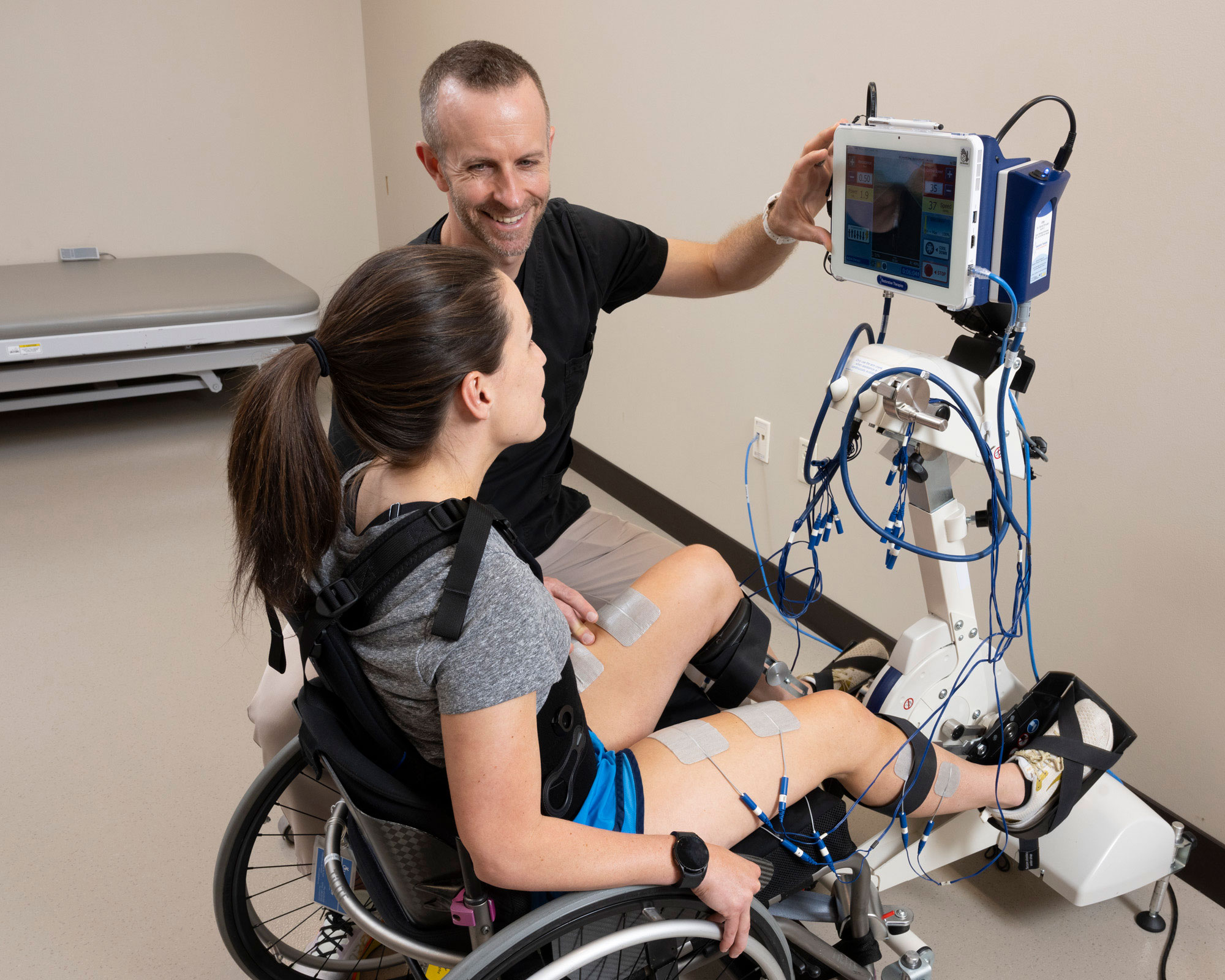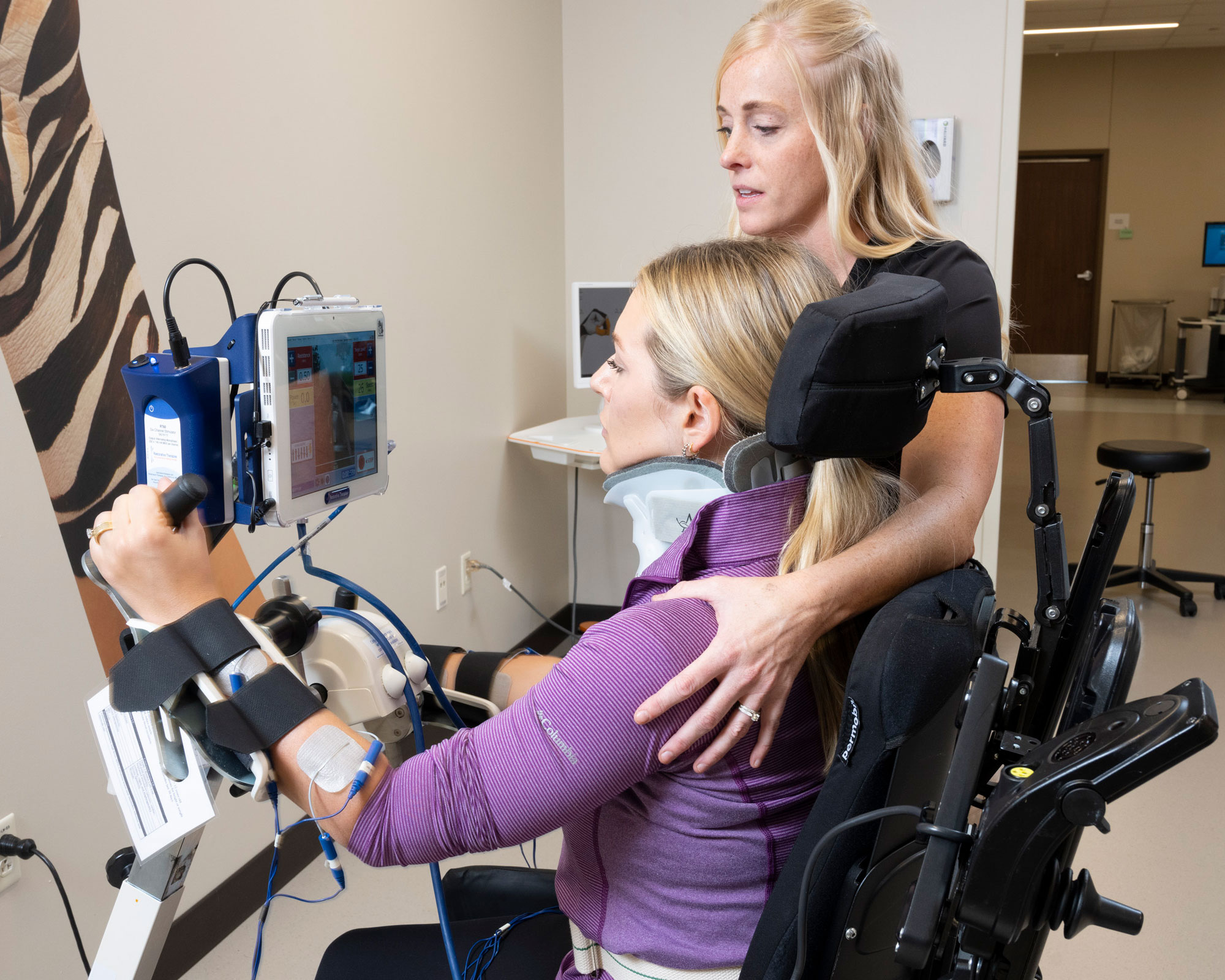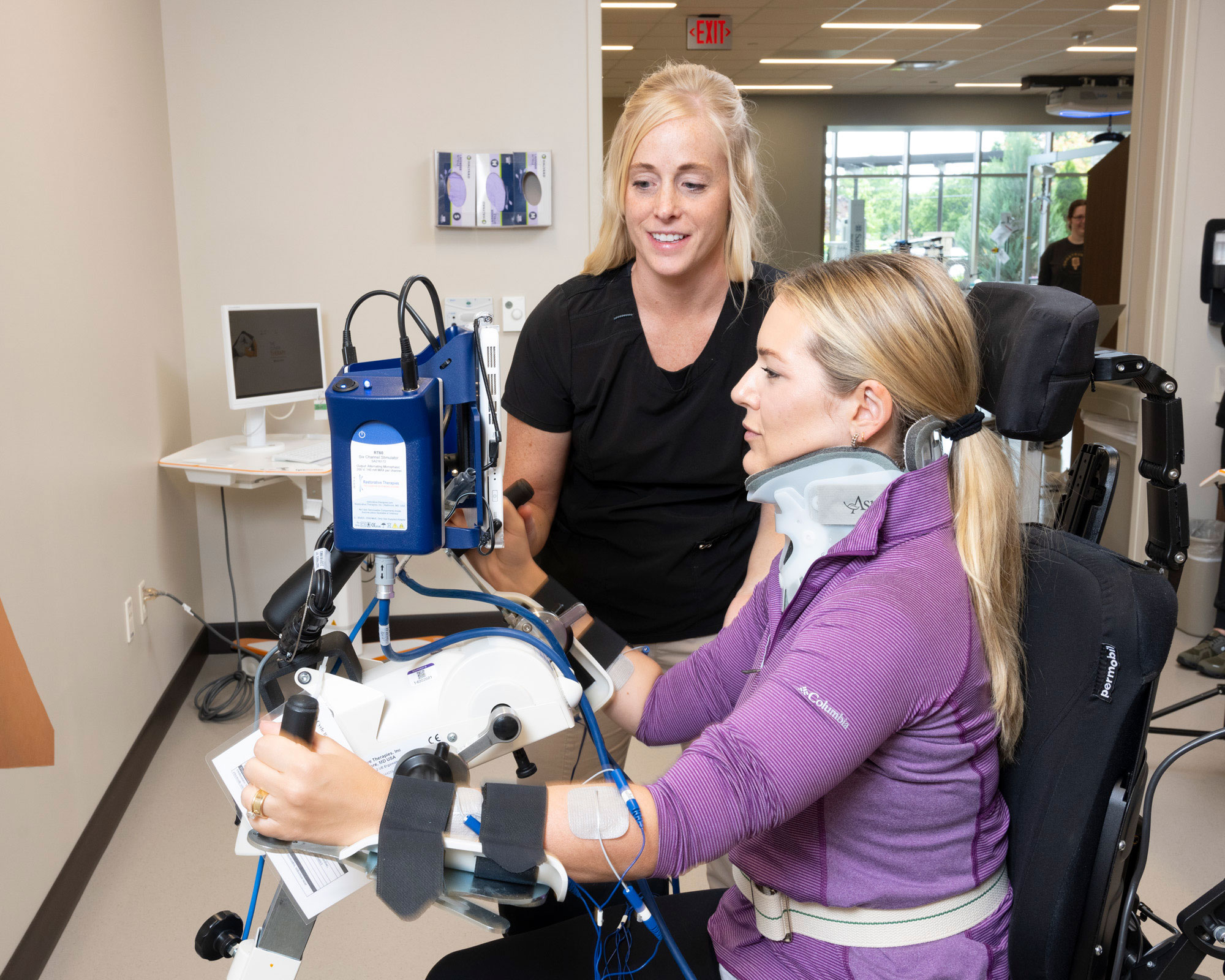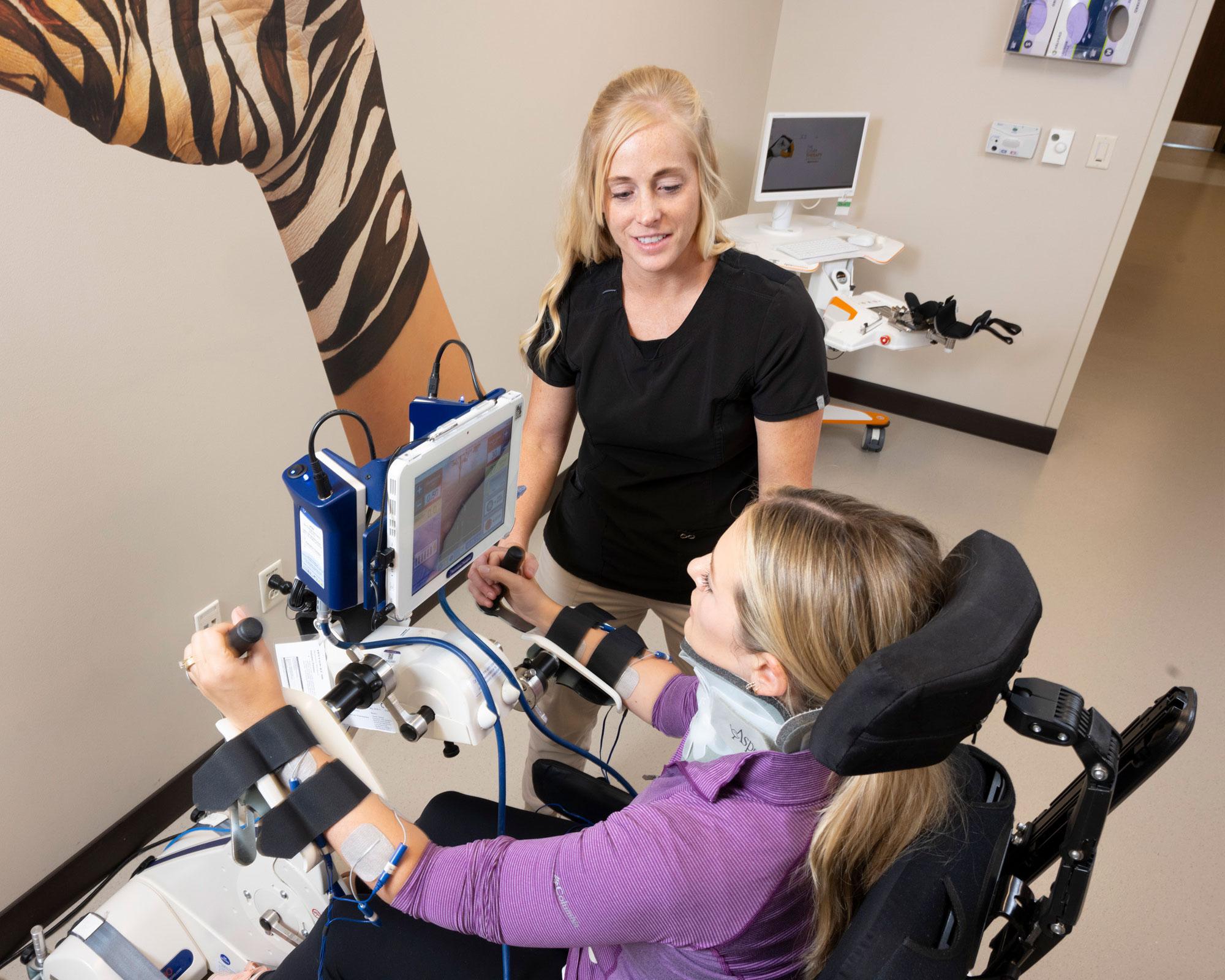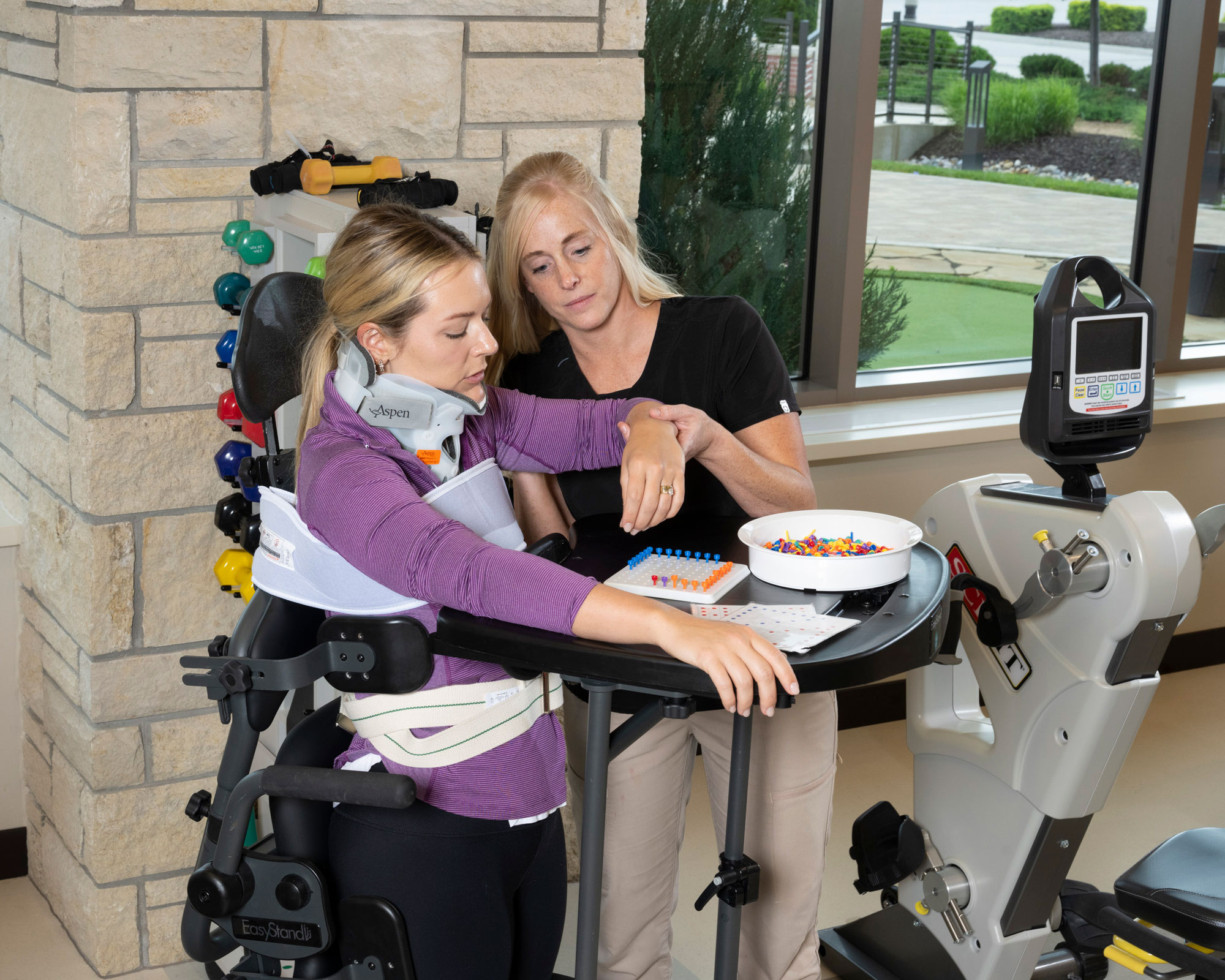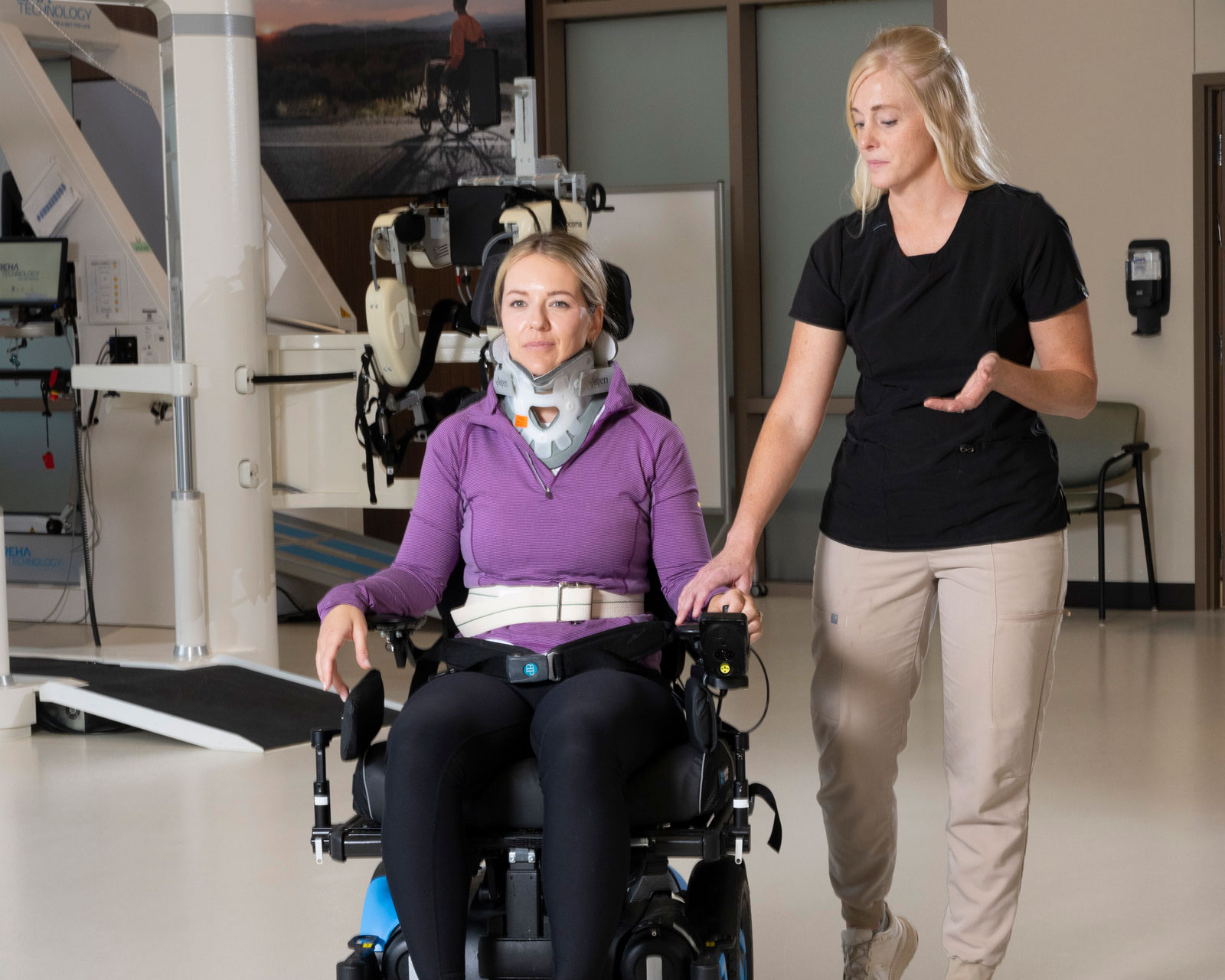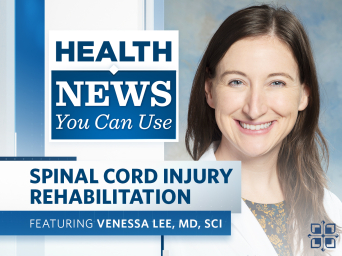Spinal Cord Injury Rehabilitation
The spinal cord injury program at Saint Luke’s Rehabilitation Institute in Overland Park, Kansas, is on the leading edge of spinal care and expertise, helping patients achieve the best possible outcomes.
Call 913-296-5199 to schedule a consultation.
Individualized Spinal Cord Injury Care
Located on the Saint Luke’s South Hospital campus, the Rehabilitation Institute offers a comprehensive program specifically to treat patients with spinal cord injuries:
- Board-certified spinal cord injury physician leader
- Multidisciplinary expertise and experience
- Fully equipped gym with the latest equipment for spinal cord injury therapies
- Traditional and non-traditional therapies, including music therapy
- Private rooms
- Higher return-to-community rate compared to region*
*Source: Uniform Data System data, April 2024
- Evaluation
Evaluations assess the patient’s physical, psychological, and communicative conditions following a spinal cord injury. Patients receive an individualized care plan aimed at improving physical, mental, and emotional functioning, with support, education, and resources to help them prepare for life outside of the hospital.
- Education
Life after a spinal cord injury can feel intimidating. Our team of experts offers reading materials, weekly classes, and training sessions that reinforce recovery and adapting techniques to help patients physically, mentally, and emotionally prepare for discharge.
We also introduce patients to local resources and organizations that bring together individuals with similar medical histories to learn, grow, and connect.
- Therapies
Patients participate in two or more of the following therapies:
- Physical: Preserve mobility and improve impaired physical function for optimal recovery.
- Occupational: Acclimate your mind and body to new ways of performing daily activities—such as drinking, eating, and grooming.
- Speech: Learn communication and swallowing techniques to address affected skills and cultivate greater independence.
- After discharge
When a patient finishes our program, we still consider them a part of our community and follow them as they continue outpatient therapy. We encourage many to join local support groups to share their experience and form new connections.
